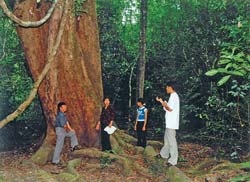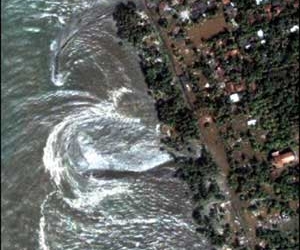Rotomairewhenua, also known as Blue Lake, located in the Nelson Lakes National Park of New Zealand, is officially recognized as the cleanest freshwater lake in the world.
Blue Lake is fed by the nearby Constance Lake in spring, and the water flows through a natural debris dam formed long ago by a landslide. These debris act as a natural filter, trapping most of the suspended particles in the glacial water, making Blue Lake almost as clear as distilled water.
Blue Lake also has a self-purifying mechanism as it drains every three days, meaning any nutrients or pollutants are washed away.
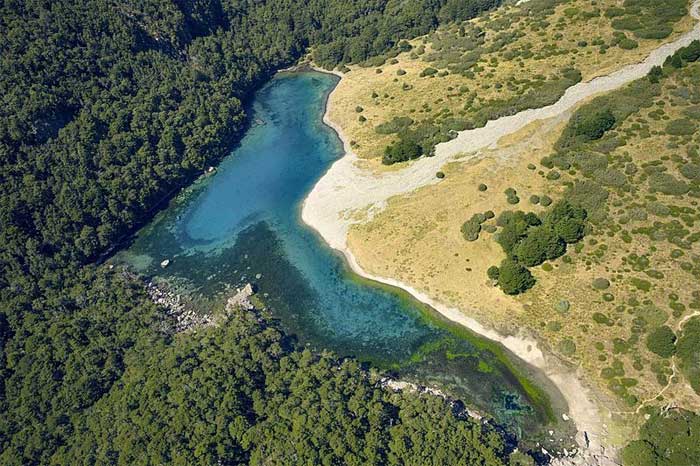
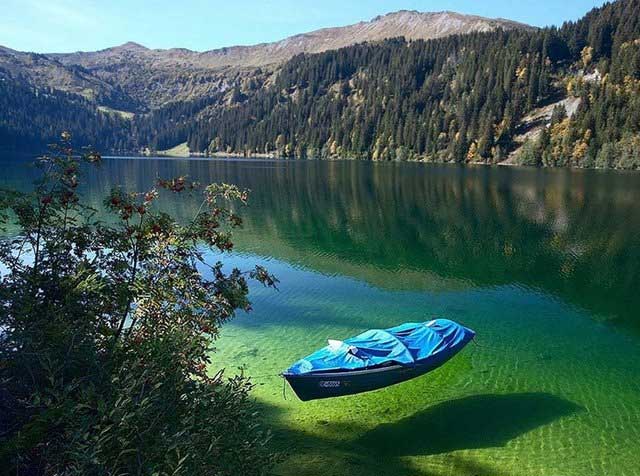
Considered the cleanest freshwater lake in the world.
The National Institute of Water and Atmospheric Research (NIWA) in New Zealand has conducted scientific tests on the water and confirmed it to be the purest natural freshwater known to mankind.
NIWA hydrologist Rob Merrilees was the first to notice the remarkable optical characteristics of Blue Lake, comparing it to the famous Te Waikoropupu Springs known for their clarity in the country.
Only after visiting Blue Lake in 2009 did he realize that Blue Lake might be even clearer than Te Waikoropupu, and two years later, NIWA’s tests confirmed this to be true.
Research has shown that visibility in Blue Lake ranges from 70 to 80 meters (260 feet), making it nearly optically clear as distilled water.
Dr. Davies-Colley stated: “The theoretical visibility in distilled water is about 80 meters, estimated from the best available laboratory measurements. Therefore, Blue Lake is a close approach to pure water in optical terms.”
Fortunately, the lake is considered sacred by the local Māori tribe, and no one is allowed to enter, let alone bathe in its waters. They refer to this lake as Rotomɑirewhenua, or the lake of peaceful lands.
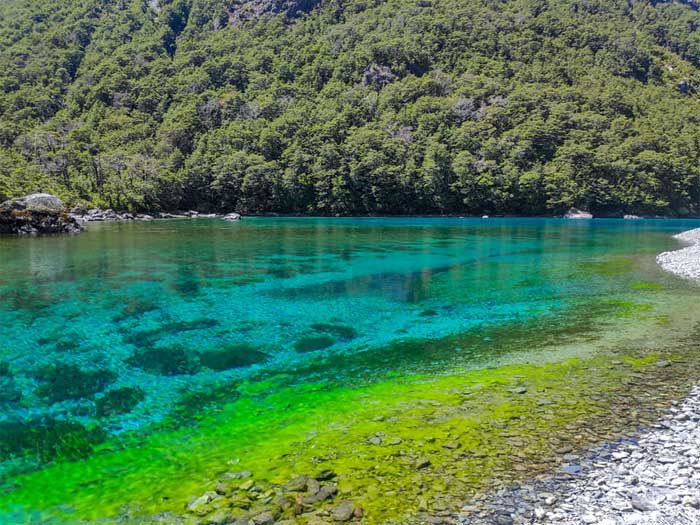
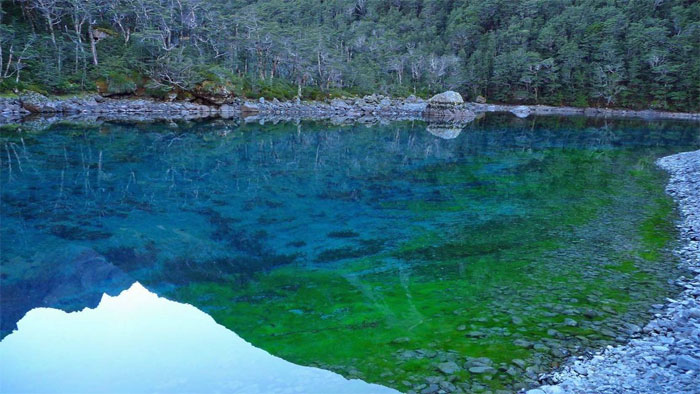
The lake is considered sacred by the local Māori tribe and no one is allowed to enter.
Kiley Nepia, cultural manager of the Māori tribe on the South Island, expressed that he felt a spiritual connection with Blue Lake when he first visited.
“I truly understand why our ancestors chose that lake for rituals. When you arrive there, you will feel a real sense of peace. Like baptismal water or church holy water, this is sacred water for the Ngati Apa ki te Ra To people,” Nepia said.
However, with a few notable exceptions, in early 2013, Danish photojournalist and environmentalist Klaus Thymann was granted special permission by the Māori Conservation Department, NIWA, and New Zealand to enter Blue Lake and capture its incredible clarity on camera for conservation purposes. The photographs he took left viewers in awe.









































